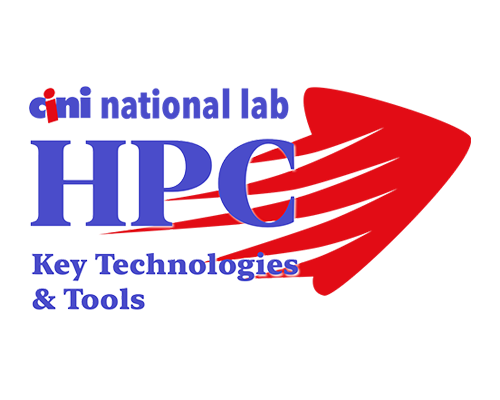
HPC: Key Technologies and Tools
Description
Objectives of the research activities
HPC programming is inherently complex because it requires combining the specific skills of application domains, such as chemistry and physics, with the technical skills in high-performance computing, more typical of information technology and computer engineering. A complexity destined to increase with the ongoing trend towards computing devices' specialization (CPU, GPU, DPU, FPGA, etc.), the heterogeneity of platforms, and the growing need to guarantee applications extra-functional requirements, such as security and robustness.
Mission
The HPC ecosystem rests on three pillars which are the sectors 1) infrastructure, 2) enabling technologies for computing, 3) applications. The "HPC: Key Technologies and Tools" (HPC-KTT) laboratory focuses on the field of enabling technologies for computing and aims to collaborate closely with the main players in the other two sectors, such as supercomputing centers and centers of excellence on specific application domains.
Organization and Nodes
The Laboratory is made up of Nodes distributed throughout the national territory and corresponding to as many Universities consortiumed with CINI. Each Node is directed by a coordinator and includes teachers and researchers. Below is the list of the Laboratory Nodes (being updated):


